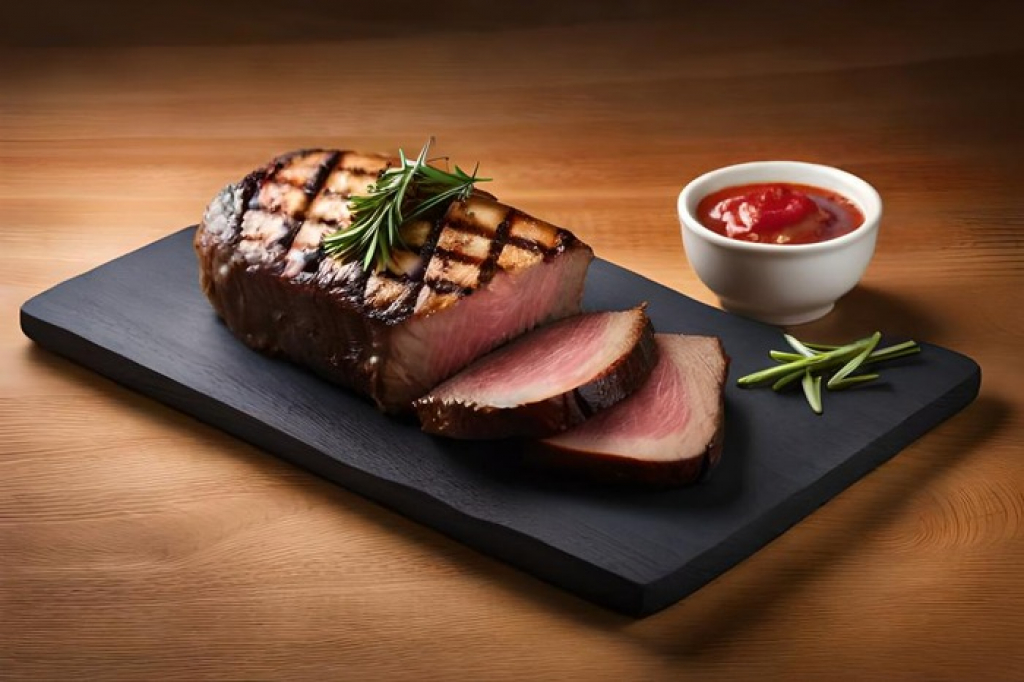
Hello, my dear friends! Today, we are going to explore an intriguing topic that has been the subject of many dinner table debates – the impact of red meat on testosterone production.
Does red meat raise testosterone? The answer, backed by several scientific studies, is yes – evidence shows that red meat, specifically beef can indeed help increase testosterone levels. *
(*Some studies also considered Pork as red meat)
However, like most things in life, there's a bit more to this story.
Understanding Testosterone: The Basics
Testosterone is a critical hormone, particularly for men, playing an integral role in numerous physiological functions – from muscle growth and fat distribution to red blood cell production and mood regulation.
The Role of Red Meat in Our Diet
Red meat has long been a staple in many diets worldwide, valued for its rich nutrient content. It provides high-quality proteins, essential amino acids, vitamins like B12, and minerals such as iron and zinc – many of these are vital for our health.
But like I always say, there's no such thing as a superfood. Every coin has two sides, and the same goes for red meat. While it is nutritionally dense, overconsumption can possibly lead to health issues like heart disease or certain types of cancer.
Nutritional Components of Red Meat Relevant to Testosterone Production
Diving a little deeper into the nutrients in red meat, let's talk about those relevant to testosterone production.
Red meat is rich in zinc, an essential mineral that documented positive effects on testosterone levels in quite a few studies.
It also has a fair amount of saturated fats. While “saturated fats” might sound alarming, they're not all bad. In fact, they're a necessary building block used in testosterone production.
Lastly, red meat is a source of Vitamin D, which has been linked to testosterone production.
Red Meat and Testosterone Production: A Look at the Research
Now, onto the meat of the matter, if you'll pardon the pun. Several studies have sought to understand the relationship between red meat and testosterone levels, and while findings vary, there's a general consensus that red meat does play a role in testosterone production.
One such study published in the Journal of Clinical Endocrinology & Metabolism found that men who consumed a diet rich in saturated fats (found in red meat) had significantly higher testosterone levels than those who didn't.
Another research published in Nutrition Journal found that zinc, which is abundantly found in red meat, plays a crucial role in modulating serum testosterone levels in healthy men.
But let's look at the other side of the coin too. Some studies suggest that excessive red meat intake could potentially lead to health complications, possibly overshadowing its testosterone-boosting benefits.
For instance, a study in the British Journal of Cancer found that high intake of red meat might increase the risk of colon cancer. It's essential to maintain a balanced perspective and approach to our diets.
Red Meat Consumption: Controversies and Considerations

You've probably heard of the controversies surrounding red meat – potential health risks, ethical considerations regarding animal welfare, and environmental impact. It's a complex issue, and it's necessary to weigh these factors when making dietary choices.
In our quest for optimal health and hormone balance, it's essential to remember that moderation is key. Including red meat in your diet can indeed be beneficial for your testosterone levels.
But remember, it's one part of a complex dietary landscape. It's not just about what you eat, but also how much, how often, and what else you're eating with it.
So, what's the verdict, you ask? Yes, red meat can help increase testosterone levels. But as with all good things, balance is the name of the game.
It's about creating a varied, balanced diet that includes a plethora of nutrient-rich foods, and not just focusing on one single component.
Don't forget that lifestyle factors like physical activity, stress levels, and sleep also play a crucial role in hormone regulation.
I hope this discussion has shed some light on the fascinating topic of red meat and testosterone production.
My intent is not to convince you one way or the other, but rather to equip you with the knowledge to make informed decisions about your diet and health.
So, the next time you're at the butcher's or dining at your favorite steakhouse, you'll have a few more nuggets of information to chew on.
Remember, my dear friends, health is wealth, and knowledge is power. Here's to making well-informed, health-conscious choices together!








